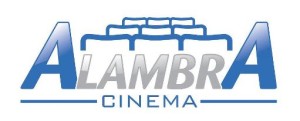Blockchain technology has emerged as a disruptive force across various industries, offering transparency, security, and efficiency in record-keeping. In recent years, governments around the world have started exploring the potential of blockchain in public records management. In this article, we will delve into the future of blockchain in public records, examining its benefits, challenges, and potential applications.
Benefits of Blockchain in Public Records
One of the key benefits of blockchain technology in public records management is its ability to provide immutable and tamper-proof records. By creating a decentralized and transparent ledger, blockchain ensures that information stored in public records cannot be altered or deleted without consensus from the network. This feature enhances the integrity and trustworthiness of public records, making them more reliable for various purposes such as land ownership, birth certificates, and government contracts.
Another advantage of blockchain in public records is increased security. Traditional record-keeping systems are vulnerable to cyberattacks and data breaches, putting sensitive information at risk. With blockchain, data is encrypted and distributed across a network of nodes, making it significantly harder for hackers to compromise the system. This enhanced security reduces the likelihood of fraud and unauthorized access to public records, safeguarding the privacy and rights of individuals.
Additionally, blockchain technology offers efficiency and cost savings in public records management. By automating processes such as verification, authentication, and validation, blockchain can streamline record-keeping tasks and reduce the need for manual intervention. This not only speeds up the processing of public records but also minimizes the potential for errors and delays. Furthermore, the decentralized nature of blockchain eliminates the need for intermediaries, leading to cost savings for governments and taxpayers.
Challenges of Implementing Blockchain in Public Records
While the benefits of blockchain in public records are clear, there are several challenges that need to be addressed for successful implementation. One of the main challenges is the interoperability of blockchain systems with existing legacy systems. Public records are often stored in outdated formats and databases, making it difficult to integrate blockchain technology seamlessly. Governments will need to invest in upgrading their infrastructure and developing standards for data migration to ensure compatibility with blockchain platforms.
Another challenge is scalability. As the volume of public records continues to grow, blockchain networks must be able to handle large amounts of data and transactions without compromising performance. Scalability issues such as network congestion and high transaction fees need to be overcome to support the widespread adoption of blockchain in public records management. Solutions like sharding, off-chain scaling, and layer-two protocols are being explored to improve scalability and enhance the efficiency of blockchain networks.
Moreover, regulatory and legal challenges pose a significant barrier to the implementation of blockchain in public records. Governments must navigate complex legal frameworks and compliance requirements when adopting blockchain technology for record-keeping purposes. Issues related to data privacy, ownership rights, and jurisdictional boundaries need to be addressed to ensure that public records stored on the blockchain comply with existing regulations and laws. Policymakers and stakeholders must work together to develop clear guidelines and frameworks for the responsible use of blockchain in public records management.
Potential Applications of Blockchain Anex System in Public Records
Despite the challenges, the potential applications of blockchain in public records are vast and varied. One area where blockchain technology can make a significant impact is land registration. By storing land titles and property ownership records on a blockchain, governments can prevent fraud, disputes, and corruption in real estate transactions. Blockchain can provide a transparent and secure way to verify land ownership, transfer titles, and track historical records, facilitating efficient land governance and investment.
Another potential application is digital identity management. Blockchain offers a decentralized and self-sovereign approach to identity verification, allowing individuals to control and share their personal information securely. Governments can use blockchain to issue and authenticate digital identities, enabling citizens to access public services, vote in elections, and participate in online transactions with confidence. By leveraging blockchain for identity management, governments can enhance trust, reduce identity theft, and empower individuals to manage their own digital identities.
Furthermore, blockchain technology can revolutionize the management of public health records. By storing medical records on a blockchain, healthcare providers can securely share patient information, track the provenance of data, and ensure the integrity of health records. This can improve the coordination of care, reduce medical errors, and enhance patient outcomes. Blockchain-based health records also enable individuals to have greater control over their medical data, allowing them to share it with trusted parties and participate in research initiatives while maintaining privacy and confidentiality.
In conclusion, the future of blockchain in public records is promising, with the potential to transform how governments manage, store, and share information. By leveraging the benefits of blockchain technology such as immutability, security, and efficiency, governments can enhance the integrity, transparency, and accessibility of public records for the benefit of society. While there are challenges to overcome, the opportunities for innovation and improvement in public records management are vast. As governments continue to explore and adopt blockchain solutions, the future of public records looks brighter with blockchain technology at its core.

